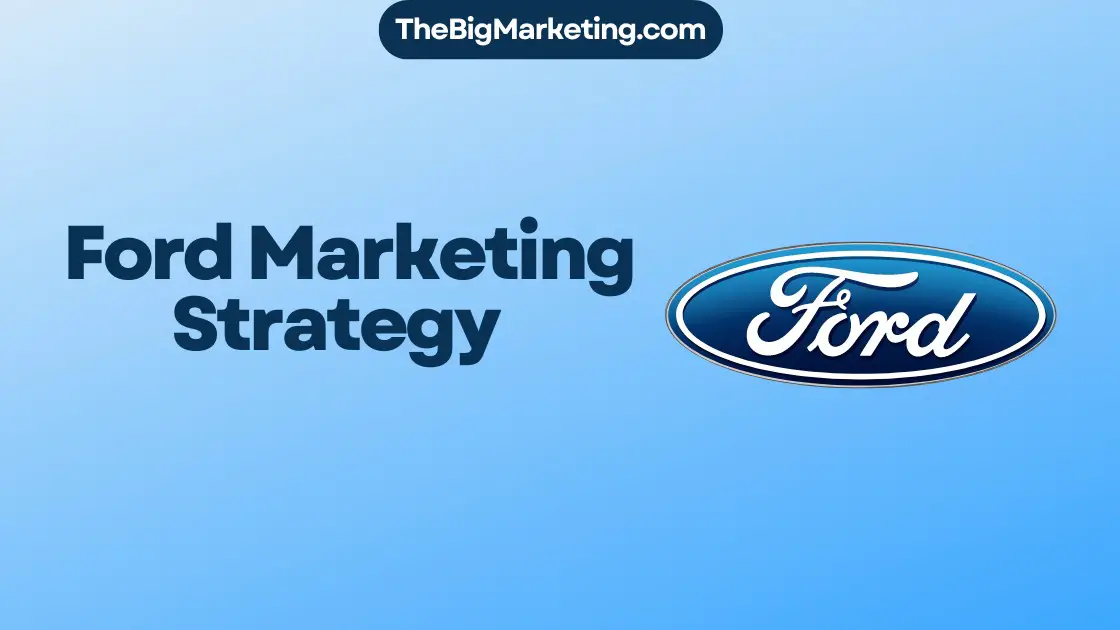In an ever-evolving automotive industry, keeping up with the latest marketing strategies is crucial for staying ahead of the competition. As we enter 2024, it’s clear that automotive businesses need to adapt to changing consumer behavior and embrace digital marketing tactics to thrive in the industry.
Buyer behavior has undergone significant shifts, with automotive purchases increasingly taking place online. Customers now rely heavily on digital platforms for research and decision-making, and it’s essential for businesses to establish a strong online presence to engage with these potential buyers.
Digital marketing for the auto industry encompasses various strategies and channels, from social media marketing to video marketing and personalized customer experiences. By embracing these strategies, automotive businesses can effectively reach their target audience, drive leads, and increase sales.
Key Takeaways:
- Automotive businesses must adapt to changing consumer behavior and embrace digital marketing strategies.
- Online research has become a vital part of the car buying journey, and businesses need to build a strong online presence to engage with potential buyers.
- Digital marketing tactics such as social media marketing, video marketing, and personalized customer experiences are essential for success in the automotive industry.
- Stay up-to-date with emerging trends and adjust your marketing strategies accordingly to stay competitive in 2024.
- Optimize your website and landing pages for local SEO to drive foot traffic to your dealership.
Shifting Automotive Purchases Online
With the impact of Covid-19, the automotive industry has witnessed a significant shift in buyer behavior. A younger demographic, previously reliant on public transport, now seeks car ownership. These individuals are increasingly comfortable conducting online research to explore their options. In fact, as much as 88% of potential car buyers turn to the internet to gather information about different vehicles.
Despite the growing reliance on online research, brick-and-mortar dealerships still play a vital role in the automotive purchase journey. Approximately 79% of car buyers still prefer the traditional dealership experience to make their final decision. This suggests that the car buying journey is non-linear, encompassing multiple touchpoints both online and offline.
Given these trends, it is essential for automotive businesses to establish a strong online presence and effectively engage with potential buyers. By meeting customers where they are present, brands can cater to the evolving preferences and expectations of today’s buyers.
Online Research: A Game-Changer
The availability of detailed information, interactive websites, and virtual showrooms have revolutionized the way automotive purchases are made. Online research empowers consumers, enabling them to access in-depth specifications, compare prices, read reviews, and even customize their ideal vehicle. This online research phase helps customers narrow down their options and gain confidence in their final decision.
However, it’s important to note that the online research phase is just the beginning of the car-buying journey. Consumers then seek further validation, a hands-on experience, and the opportunity to engage with sales representatives at the physical dealership location.
In the next section, we will explore the importance of personalized customer experiences in the automotive industry, which plays a crucial role in meeting the evolving expectations of buyers.
Personalized Customer Experience
Customer experience plays a crucial role in the success of any business. In the automotive industry, providing personalized engagement is essential to meet the ever-increasing expectations of consumers. According to recent studies, 71% of customers expect businesses to offer personalized experiences. This means tailoring your interactions, messages, and offers to meet individual needs and preferences.
To achieve this level of personalization, automotive businesses are turning to insights-based strategies. AI and data analytics are being leveraged to gain valuable insights about customers, including their behaviors, preferences, and purchase intent. By analyzing these valuable data points, businesses can create highly customized and targeted experiences that resonate with potential buyers.
An effective tool in personalizing the customer experience is lead management systems. These systems track each lead’s journey, capturing valuable information about their interests, touchpoints, and behaviors. This data helps identify quality leads with high purchase intent, allowing businesses to prioritize their efforts and resources.
When it comes to gathering customer data, lead generation forms are preferred over relying on third-party data. In fact, 74% of car shoppers are comfortable sharing personal information such as their preferences, budget, and contact details in exchange for customized messages. This willingness to share data presents valuable opportunities for businesses to deliver tailored marketing materials and build stronger connections with potential buyers.
Utilizing zero and first-party data is becoming increasingly important in creating personalized messages for potential buyers. By using data collected directly from customers or from reliable sources, businesses can create more accurate and targeted communications. This personalized approach not only improves the customer experience but also increases the likelihood of conversion and long-term customer loyalty.
Overall, investing in personalized customer experiences is a key strategy for automotive businesses in 2024. By leveraging AI, data analytics, lead management systems, and customer data, businesses can create meaningful and unique engagements that will set them apart from their competitors.
Omnichannel Content Strategy
When it comes to researching car options, today’s car shoppers are turning to multiple channels, including social media, video platforms, and websites. Third-party sites are often the first stop, followed by visits to dealerships and automaker websites. To effectively reach and engage these potential buyers, automotive businesses need to implement an omnichannel content strategy that covers all these platforms and provides consistent information to increase buyer confidence.
An omnichannel approach ensures that car shoppers receive the same messaging and experience across different channels, creating a seamless journey and enhancing their trust in the brand. By targeting key purchase drivers across channels, automotive businesses can effectively guide potential buyers towards a purchase decision.
Optimizing content for mobile is crucial in an omnichannel strategy, as mobile search is gaining momentum. Car shoppers often rely on their smartphones for research, and ensuring that the content is responsive and easily accessible on mobile devices can greatly improve the overall user experience.
Additionally, experimenting with new platforms and formats can be beneficial in expanding reach and engagement. With the growing popularity of TikTok as a content-sharing platform, automotive businesses can explore creating innovative and captivating content tailored to this unique channel.
Implementing an effective omnichannel content strategy has become essential in the automotive industry. It allows businesses to meet potential buyers where they are, provide consistent and reliable information, and ultimately increase their chances of making a successful sale.
Benefits of an Omnichannel Content Strategy
By adopting an omnichannel content strategy, automotive businesses can benefit from:
- Increased visibility across multiple channels
- Enhanced buyer confidence through consistent information
- Improved customer experience and journey
- Greater reach and engagement
- Higher chances of converting leads into sales
An effective omnichannel content strategy is crucial for automotive businesses looking to stay competitive in the ever-evolving digital landscape. By reaching potential buyers through multiple channels and providing consistent and valuable information, automotive brands can build trust, drive engagement, and ultimately drive sales.
| Most Visited Channels for Research | |
|---|---|
| 1 | Third-party sites |
| 2 | Dealerships |
| 3 | Automaker websites |
Video Marketing Growth
Video marketing is a powerful tool for automotive brands to connect with their target audience. According to recent studies, 91% of people wish to see more videos from brands. This growing demand presents a valuable opportunity for automotive businesses to enhance their marketing strategies.
One platform that has proven to be highly effective for video marketing in the automotive industry is YouTube. With a vast user base and extensive reach, YouTube allows car buyers to explore automotive videos, uncovering valuable insights and experiences.
One of the key advantages of video marketing is the ability to tell compelling stories that resonate with viewers. Through well-crafted narratives, automotive brands can showcase the unique features, performance, and experiences associated with their vehicles. This storytelling approach helps create an emotional connection with potential customers, leading to increased brand loyalty and engagement.
Automotive businesses can leverage various video formats to capture the attention of their target audience. Behind-the-scenes videos provide an intimate look into the manufacturing process, highlighting the precision and craftsmanship involved. Launch events can be documented to generate excitement and anticipation among car enthusiasts. Educational content, such as tutorials and reviews, can help educate and inform potential customers, empowering them to make well-informed purchasing decisions.
To maximize the impact of video marketing, automotive brands should consider leveraging social proof. Testimonials from satisfied customers, industry experts, or popular influencers can greatly enhance credibility and increase trust in the brand. By incorporating social proof into their video content, automotive businesses can boost their reach and conversion rates.
Furthermore, creating video-specific ad campaigns can help automotive brands reach a broader audience. By targeting specific demographics and interests, these campaigns can drive more traffic to the brand’s YouTube channel or website, increasing the likelihood of conversions.
In conclusion, video marketing is an essential component of a successful automotive marketing strategy. By utilizing platforms like YouTube and employing storytelling techniques, automotive brands can engage their audience, increase brand awareness, and drive conversions. With the growing demand for video content, now is the ideal time for automotive businesses to invest in video marketing and reap the benefits it offers.
Social Media Lead Generation
Social media plays a significant role in the automotive industry, with 21% of car buyers crediting it for directly informing their purchases. Platforms like YouTube, Facebook, Instagram, and even TikTok are powerful tools for reaching and engaging potential customers.
One of the key advantages of social media is its ability to generate leads. By utilizing different formats such as stories and short-form videos, automotive brands can create engaging content that captures the attention of their target audience. These formats allow for creativity and storytelling, enabling brands to showcase their vehicles and create an emotional connection with potential buyers.
Social media platforms also provide valuable insights and feedback through the comments section. This feedback can help automotive brands understand customer preferences and improve their offerings. Building communities and leveraging advocacy can further boost business, as satisfied customers become brand ambassadors and spread positive word-of-mouth.
It’s important for automotive brands to use social media accounts to direct buyers to their website, where they can find more information and make direct inquiries. This seamless transition from social media to the brand’s website enhances the customer journey and increases the likelihood of lead conversion.
Overall, social media offers a powerful platform for lead generation and customer engagement in the automotive industry. By utilizing different social media formats, engaging with customers, and building communities, automotive brands can effectively leverage these platforms to drive business growth.
Benefits of Social Media Lead Generation:
- Directly informs car purchases for 21% of buyers
- Engages the audience through stories and short-form videos
- Provides valuable feedback and insights through comments
- Builds communities and leverages advocacy
- Drives traffic to the brand’s website for lead conversion
Comparing Social Media Platforms for Automotive Lead Generation
| Social Media Platform | Advantages for Lead Generation | Target Audience |
|---|---|---|
| YouTube | Video-centric platform with a wide reach | People interested in detailed vehicle reviews and experiences |
| Versatile platform with diverse ad formats | A broad range of car buyers and enthusiasts | |
| Visual platform for showcasing vehicles | Youthful and style-conscious car buyers | |
| TikTok | Emerging platform for creative and engaging content | Trend-conscious, younger audience |
Refined Digital Advertising Strategies
In today’s digital age, the automotive industry is witnessing a significant increase in customers conducting online research before making car purchases. As a result, automotive businesses are allocating more of their marketing budgets to digital advertising activities. To stay ahead in this competitive landscape, it is crucial to leverage effective digital advertising strategies that can boost visibility, drive sales, and enhance brand awareness.
Utilizing Search Engine Marketing (SEM) and Pay-Per-Click (PPC) Campaigns
Search engine marketing (SEM) and pay-per-click (PPC) campaigns have proven to be highly effective tools for reaching potential car buyers. By running targeted ads on search engine results pages, automotive businesses can increase their online visibility and drive relevant traffic to their websites. PPC campaigns allow businesses to pay only when users click on their ads, ensuring a higher return on investment.
With SEM and PPC, it is essential to incorporate geo-targeting, ensuring that ads are shown to potential customers within specific geographical locations. This approach helps businesses target individuals who are more likely to convert into customers based on their proximity to dealerships or specific market demographics.
Moreover, it is vital to include a unique selling point (USP) in ad copies to differentiate the brand from competitors and capture users’ attention. A clear call to action (CTA) should also be included, guiding users towards the desired action, such as visiting a website or scheduling a test drive.
Harnessing the Power of Social Media Ads
In today’s digital landscape, social media platforms play a significant role in reaching and engaging customers. Automotive businesses can effectively leverage social media ads to connect with their target audience. Facebook, Instagram, Twitter, and LinkedIn provide powerful advertising features that enable businesses to target users based on their interests, demographics, and online behavior.
When running social media ads, it is important to align the messaging and creative assets with the platform and target audience. Each social media platform has its unique strengths and user base, so the content should be tailored accordingly. Visual content, such as images and videos, can capture users’ attention and evoke emotional responses, ultimately driving them to take action.
Quality Leads and Lead Management Systems
Generating quality leads is crucial for the success of any digital advertising strategy. Automotive businesses need to implement robust lead management systems to track and nurture leads effectively. These systems help to capture and store relevant lead information, allowing businesses to follow up with personalized and targeted communication.
Utilizing zero and first-party data can further enhance lead quality and increase the chances of conversion. By leveraging data analytics, businesses can gain insights into customers’ preferences, behaviors, and purchase intent. This knowledge enables the creation of tailored messages and offers, making the advertising campaigns more relevant and compelling.
To summarize, a refined digital advertising strategy is essential for automotive businesses to thrive in today’s competitive landscape. By effectively utilizing SEM and PPC campaigns, harnessing the power of social media ads, and focusing on quality leads and lead management systems, businesses can enhance their online visibility, drive engagement, and ultimately increase sales.
Building Trust with Online Reviews
Online reviews play a vital role in shaping the reputation of automotive businesses. According to recent studies, over 90% of car buyers read online reviews before making a dealership decision. Hence, it’s crucial for automotive brands to understand the significance of customer feedback and leverage it to build trust with potential customers.
One effective strategy is to collect and showcase positive reviews on your website and social media platforms. Displaying genuine customer testimonials can instill confidence in prospective buyers and demonstrate the quality of your products and services.
However, it is equally important to handle negative reviews tactfully. Instead of deleting or ignoring them, respond promptly and professionally. Addressing concerns and offering solutions publicly shows that you value customer feedback and are committed to providing a satisfactory experience. This level of transparency builds trust and shows that you care about customer satisfaction.
Incorporating customer testimonials and reviews into your overall marketing strategy is also crucial for enhancing credibility. Including snippets of positive reviews in your advertisements, social media posts, and website content can add authenticity and influence potential buyers.
Furthermore, ensuring that your business is listed on relevant websites and directories is essential for improving online visibility and reputation. Being present on platforms such as Google My Business and industry-specific directories boosts your credibility and helps potential customers find your dealership easily.
The Power of Online Reviews: A Trust-Building Example
Let’s look at a real-life example of how online reviews can impact automotive reputation.
Case Study: Johnson’s Auto Group
| Reputation Factor | Before Online Reviews | After Implementing Review Strategy |
|---|---|---|
| Customer Trust |
– Limited testimonials and reviews – Moderate customer trust |
– Showcased positive reviews on website and social media platforms – Responded promptly to feedback – Increased customer trust and loyalty |
| Online Visibility |
– Minimal presence on directories – Limited online visibility |
– Listed on Google My Business and industry-specific directories – Improved online visibility and search rankings |
In just a few months, Johnson’s Auto Group witnessed a significant improvement in customer trust and online visibility by leveraging the power of online reviews. Their proactive approach to collecting, responding, and showcasing reviews strengthened their reputation and positioned them as a trustworthy automotive brand.
By implementing similar strategies, your dealership can also enhance customer trust and establish a strong automotive reputation.
Harnessing the Power of Social Media
Social media marketing is a powerful tool for automotive brands. By creating an online presence on platforms like Instagram, Facebook, and LinkedIn, you can engage customers and build brand loyalty. The reach and accessibility of social media platforms make them an ideal channel for connecting with your target audience.
To make the most of social media marketing, it’s important to utilize different formats and engage with customers through comments and direct messages. By actively responding to feedback and addressing customer inquiries, you can enhance your brand’s image and foster positive customer relationships.
Building communities on social media is another effective strategy for automotive brands. By creating groups or communities centered around shared interests or experiences related to your brand, you can foster a sense of belonging and encourage customer engagement.
Leveraging social proof is also a valuable tactic. Positive reviews, testimonials, and user-generated content can help build credibility and trust among potential customers. Sharing this social proof on your social media platforms can effectively showcase the positive experiences others have had with your brand.
Directing traffic to your website is essential in social media marketing. Including links to relevant landing pages or product pages in your social media posts can drive visitors to your website, where they can find additional information and make a purchase. Additionally, utilizing social media for promotions and customer service can help enhance the overall customer experience and drive brand loyalty.
By harnessing the power of social media marketing, automotive brands can increase their brand awareness, engage customers, and cultivate long-lasting relationships. Utilizing social media platforms effectively can lead to significant business growth and success.
Local SEO for Dealership Traffic
Local SEO is an essential aspect of dealership marketing, as it plays a crucial role in driving foot traffic to your showroom. By optimizing your website and landing pages for mobile devices, ensuring fast load times, and providing easy navigation, you can create a seamless online experience that encourages customers to visit your physical location.
Utilizing location-based marketing strategies can significantly increase your dealership’s visibility in local search results. By targeting specific keywords that your competitors are ranking for, you can improve your chances of appearing in relevant search queries and capturing the attention of potential customers in your area.
Building credibility is another crucial aspect of local SEO. Positive customer reviews can greatly influence a person’s decision to visit your dealership. By actively collecting and showcasing favorable reviews, you can instill trust and confidence in prospective buyers. Additionally, maintaining an active presence on social media platforms allows you to engage with your audience, build meaningful connections, and drive traffic to your dealership.

| Local SEO Best Practices |
|---|
| Optimize website and landing pages for mobile |
| Ensure fast load times and easy navigation |
| Utilize location-based marketing |
| Target keywords that competitors are ranking for |
| Build credibility through positive reviews |
| Maintain an active presence on social media |
Conclusion
In conclusion, the automotive industry is witnessing significant shifts in consumer behavior and preferences. To stay competitive, automotive brands must adapt to the changing landscape by implementing effective marketing strategies for 2024.
Building a strong online presence is crucial for reaching potential customers. With an increasing number of buyers conducting online research, it is essential for automotive businesses to have a user-friendly website and engage in digital advertising campaigns. By utilizing search engine optimization (SEO) techniques, pay-per-click (PPC) advertising, and social media marketing, brands can increase their visibility and generate leads.
Additionally, providing a personalized customer experience is paramount. Leveraging data analytics and artificial intelligence (AI), businesses can gain insights into customer preferences and behavior, enabling them to deliver tailored experiences. Through customer engagement and targeted messaging, automotive brands can build trust, enhance brand loyalty, and increase sales.
Finally, embracing emerging trends such as video marketing and local SEO strategies can give brands a competitive edge in the automotive industry. Video marketing allows for storytelling and showcasing the unique features and experiences associated with vehicles. By maximizing their presence on social media platforms and optimizing content for local search, brands can drive foot traffic to dealerships and engage with potential customers in a meaningful way.
FAQ
What are some effective marketing strategies for the automotive industry in 2024?
Effective marketing strategies for the automotive industry in 2024 include shifting automotive purchases online, providing a personalized customer experience, implementing an omnichannel content strategy, leveraging video marketing growth, utilizing social media lead generation, refining digital advertising strategies, building trust with online reviews, harnessing the power of social media, and optimizing local SEO for dealership traffic.
How are automotive purchases shifting online?
Automotive purchases are shifting online as more buyers conduct research and make car buying decisions through online platforms. However, brick-and-mortar dealerships are still preferred by many car buyers.
How can automotive businesses provide a personalized customer experience?
Automotive businesses can provide a personalized customer experience by utilizing AI and data analytics to gather insights and create highly customized and targeted experiences for their customers.
What is an omnichannel content strategy?
An omnichannel content strategy involves covering multiple channels, such as social media, video, and websites, to provide consistent information and increase buyer confidence.
How can video marketing contribute to the growth of the automotive industry?
Video marketing allows for storytelling and showcasing the features and experiences associated with vehicles, which can effectively engage potential buyers and increase reach and conversion.
How can social media be leveraged for lead generation in the automotive industry?
Social media can be leveraged for lead generation in the automotive industry by engaging with customers through comments and direct messages, building online communities, and utilizing social proof to boost the business.
What are some refined digital advertising strategies for the automotive industry?
Refined digital advertising strategies for the automotive industry include utilizing search engine marketing (SEM) and pay-per-click (PPC) campaigns, geo-targeting, including unique selling points, and having clear calls to action to increase visibility and drive sales.
How important are online reviews for the automotive industry?
Online reviews have a significant impact on the automotive industry, with over 90% of car buyers reading reviews before choosing a dealership. Collecting and showcasing positive reviews can build trust with potential customers.
How can social media marketing benefit automotive brands?
Social media marketing can benefit automotive brands by creating an online presence, engaging with customers, building brand loyalty, and utilizing different social media formats and engagement strategies.
How can local SEO drive foot traffic to dealerships?
Local SEO can drive foot traffic to dealerships by optimizing websites and landing pages for mobile, ensuring fast load times, utilizing location-based marketing, targeting relevant keywords, building credibility through positive reviews, and maintaining an active presence on social media.








